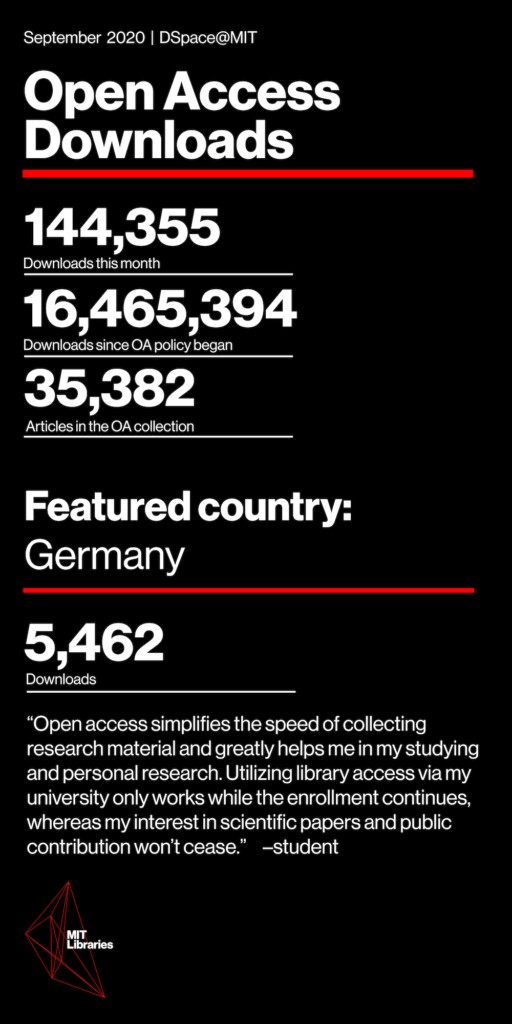 The Open Access Collection of DSpace@MIT includes scholarly articles by MIT-affiliated authors made available through open access policies at MIT or publisher agreements.
The Open Access Collection of DSpace@MIT includes scholarly articles by MIT-affiliated authors made available through open access policies at MIT or publisher agreements.
Each month we highlight the month’s download numbers and a few of the most-downloaded articles in the collection, and we feature stats and comments from a particular country.
See your own download statistics or those of a particular MIT department, lab, or center.
Top downloaded articles for September:
(Non)Existence of Pleated Folds: How Paper Folds Between Creases, Erik D. Demaine, Martin L. Demaine, Vi Hart, Gregory N. Price, Tomohiro Tachi
SUN database: Large-scale scene recognition from abbey to zoo, Jianxiong Xiao, James Hays, Krista A. Ehinger, Aude Oliva, Antonio Torralba
Microbial Interactions Lead to Rapid Micro-Scale Successions on Model Marine Particles, Manoshi S. Datta, Elzbieta Sliwerska, Jeff Gore, Martin F. Polz, Otto X. Cordero
Questions or comments? Email us: oastats@mit.edu
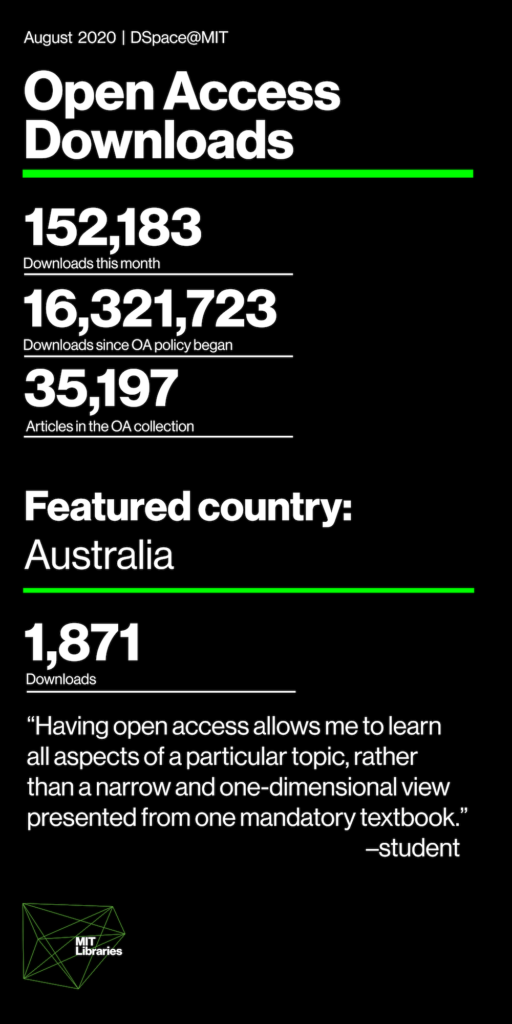
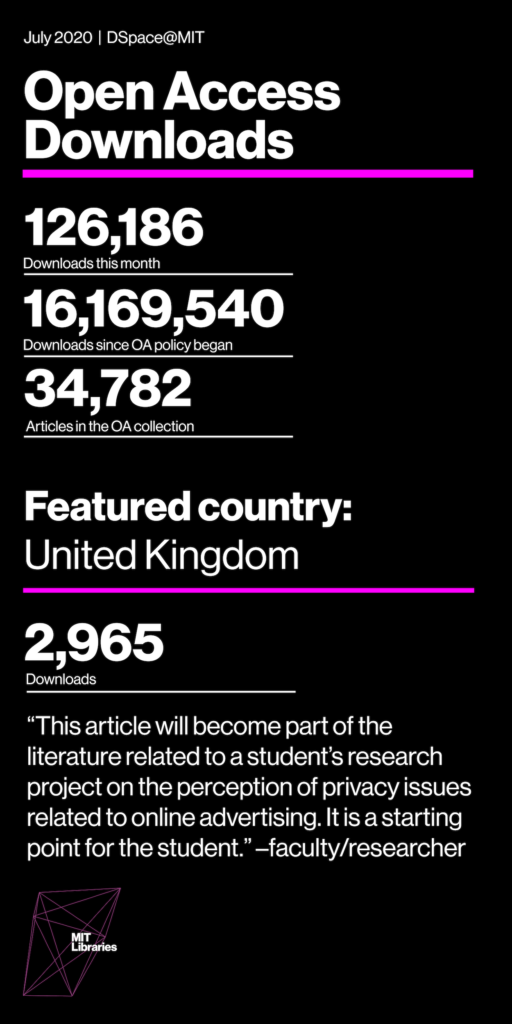 The
The 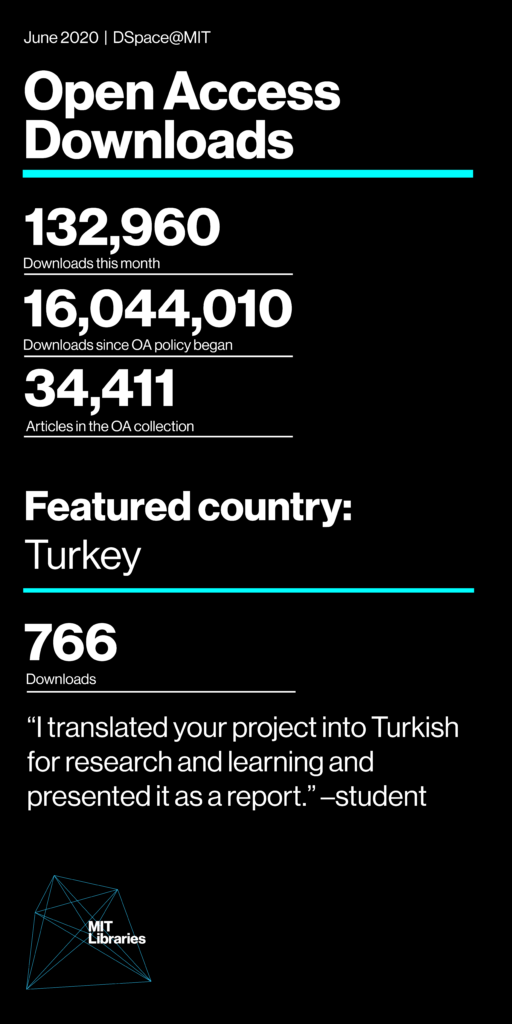 The
The 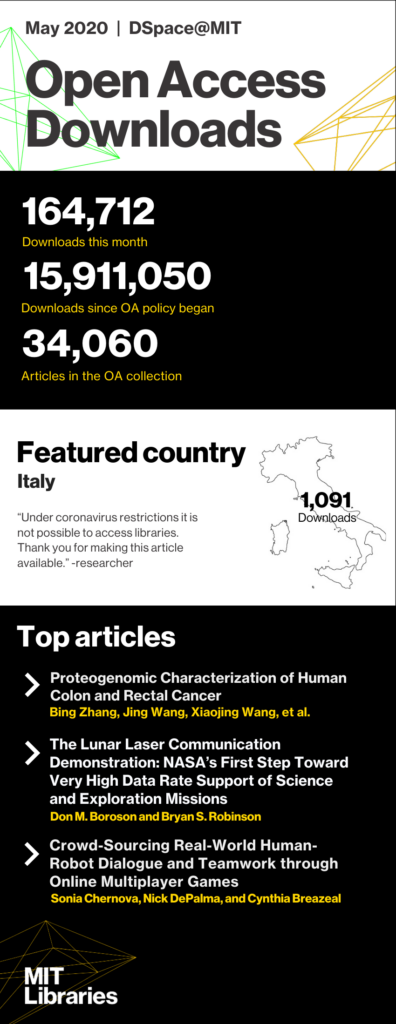 The
The 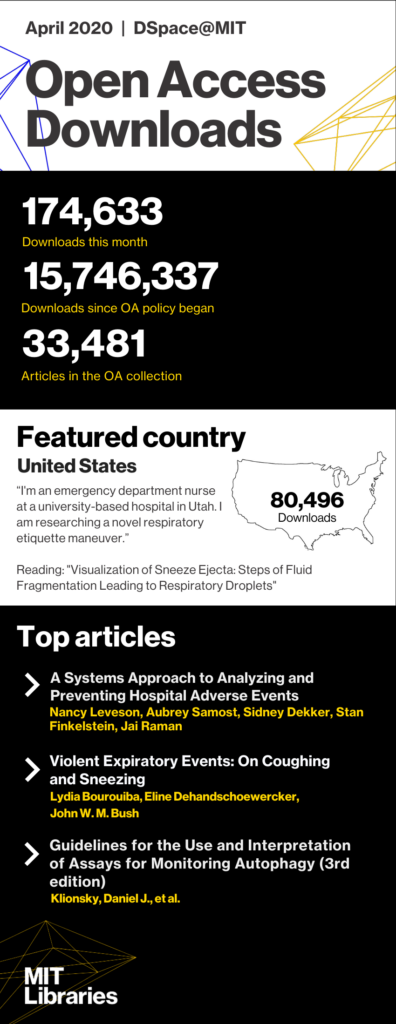 The
The 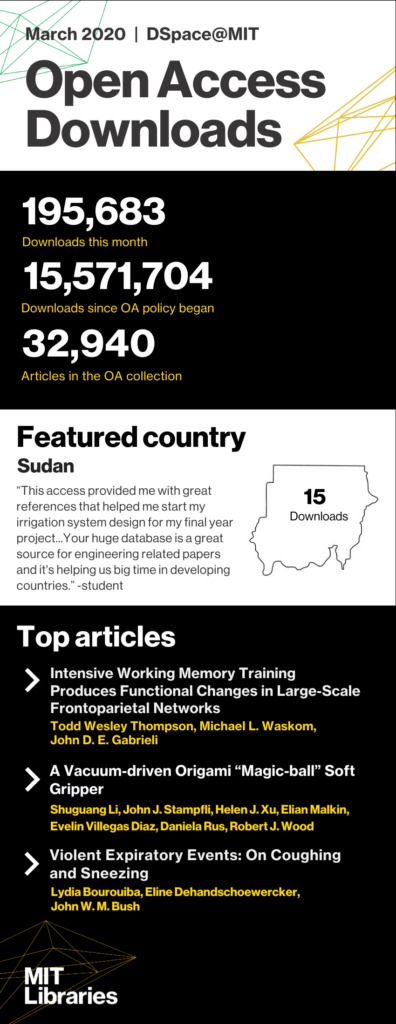 The
The 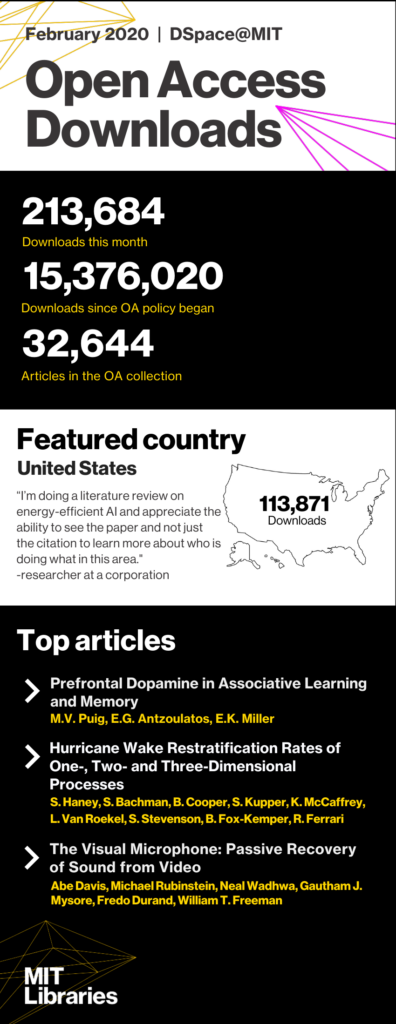 The
The 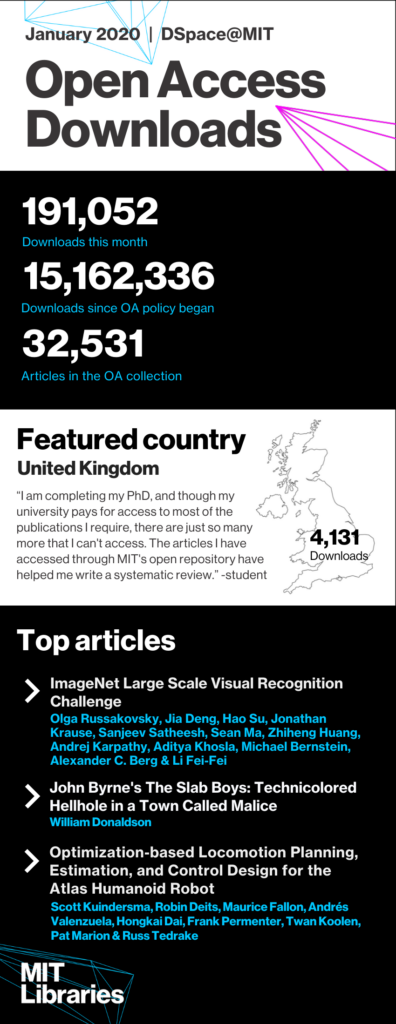 The
The